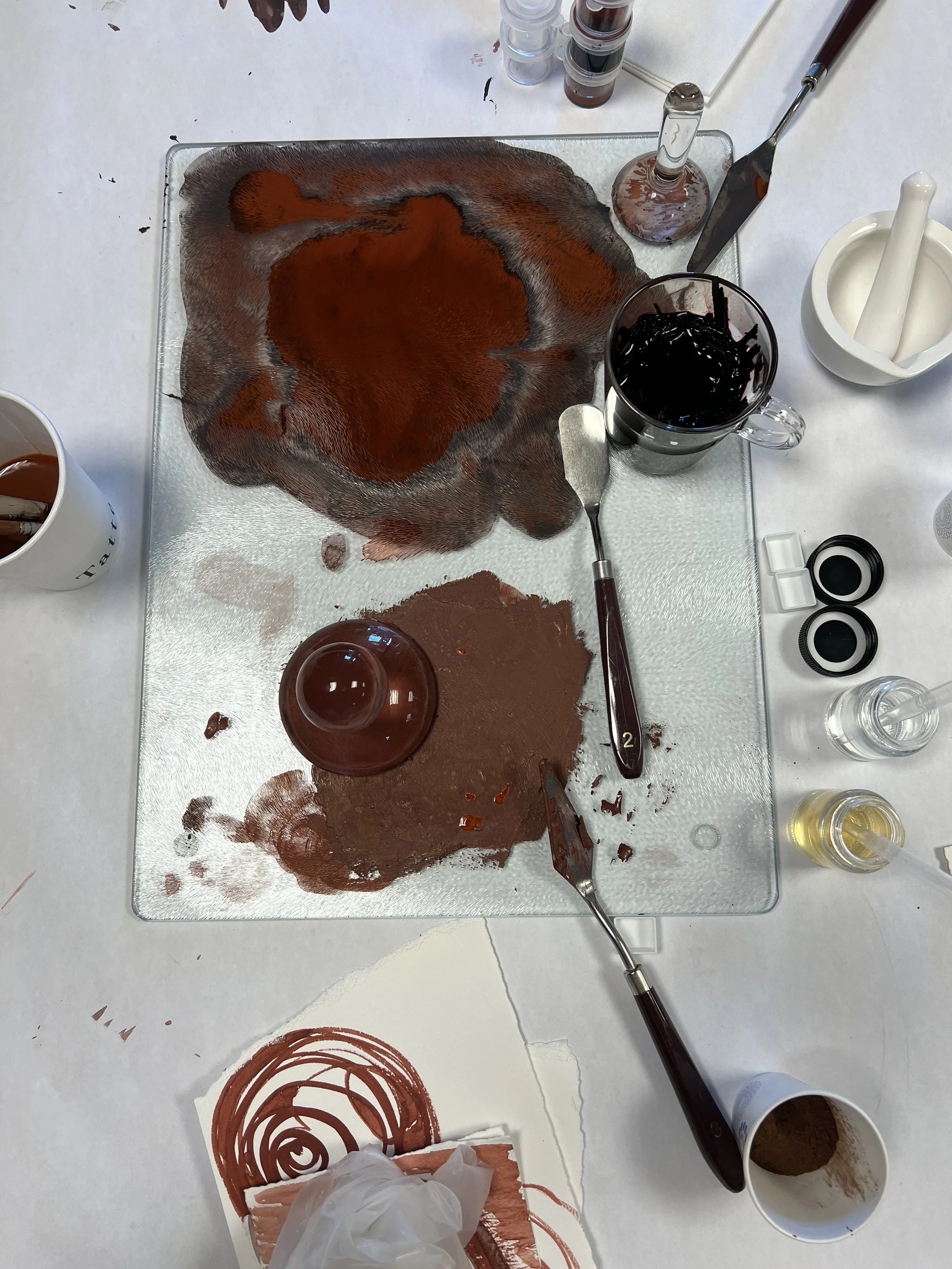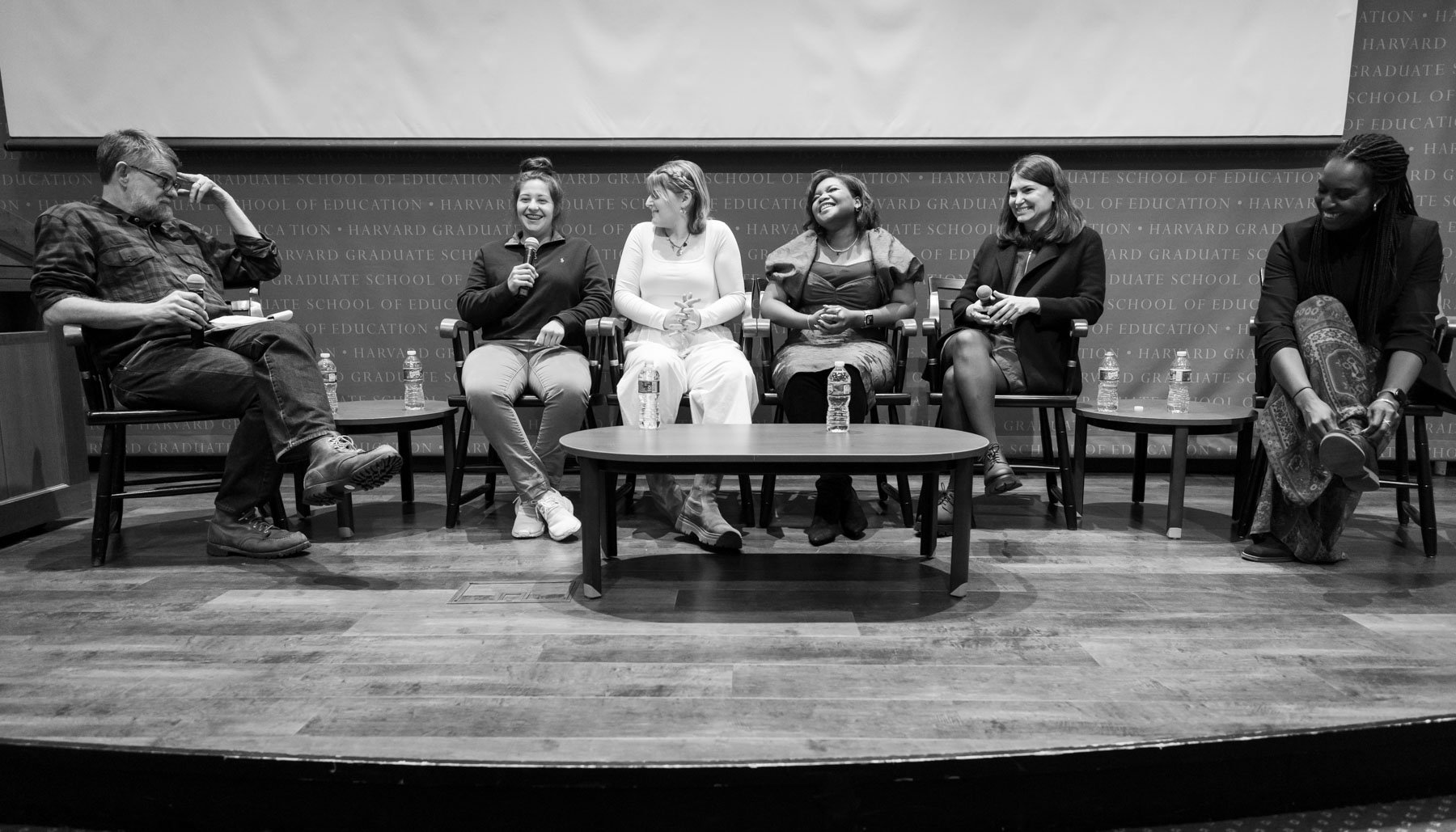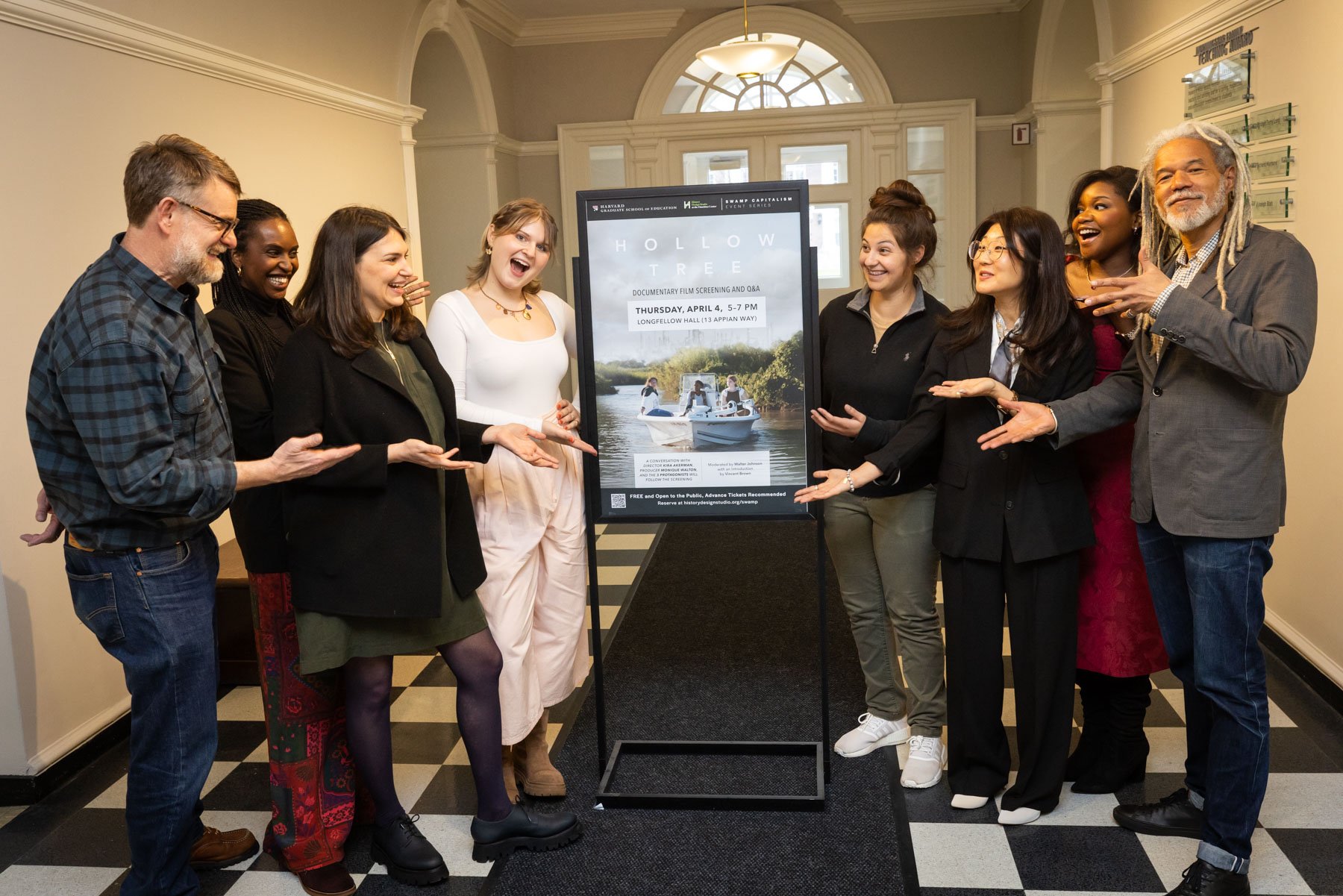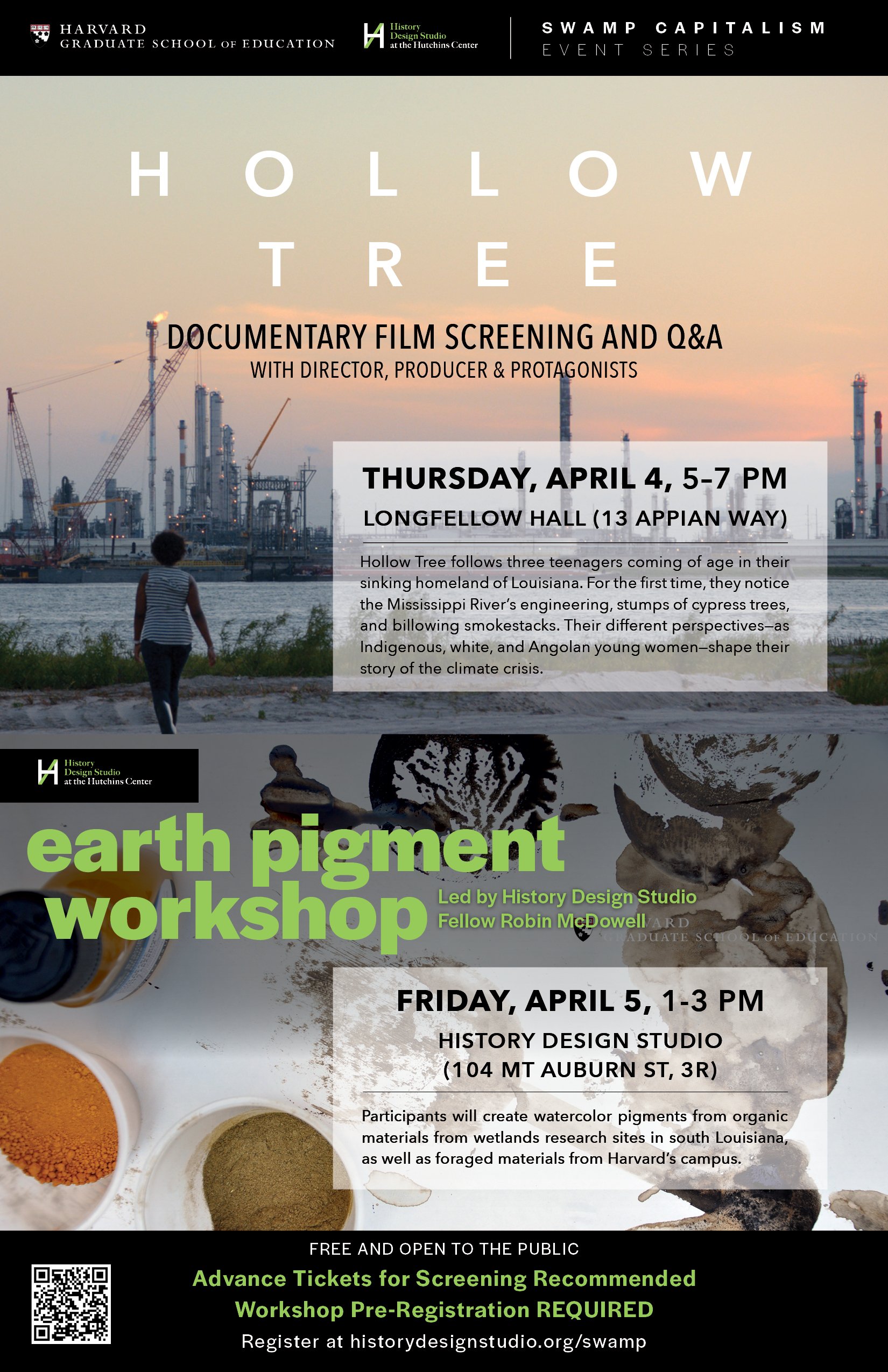














The Swamp Capitalism Event Series
The Swamp Capitalism Event Series, hosted by the History Design Studio at the Hutchins Center for African and African American Research at Harvard University, brought together artists, teachers, activists, filmmakers, and academics from New Orleans, Cambridge, and beyond for two days of public programming open to the Harvard and larger Cambridge/Boston community.
Swamp Capitalism: The Roots of Environmental Racism, an interdisciplinary project of History Design Studio Fellow Dr. Robin McDowell, traces racial, ecological, and economic encounters between African descended peoples, petroleum, sugar, and salt in Louisiana swamps on a geologic time scale. The programming brings this research to life through artmaking, documentary film, and intergenerational dialogues.
Image Credit: Melissa Blackall Photography
Screening of Hollow Tree and conversation with Director Kira Akerman, Producer Monique Walton, and Protagonists.
Moderated by Walter Johnson with an Introduction by Vincent Brown.
This event was the first in the Swamp Capitalism Event Series convened by History Design Studio Fellow Robin McDowell.
We extend special thanks to the Harvard Graduate School of Education and Dean Bridget Long for their generous support
About the Film
Hollow Tree follows three teenagers coming of age in their sinking homeland of Louisiana. For the first time, they notice the Mississippi River’s engineering, stumps of cypress trees, and billowing smokestacks. Their different perspectives — as Indigenous, white, and Angolan young women — shape their story of the climate crisis.
The 73-minute award-winning documentary, directed by Kira Akerman and produced by Monique Walton and Chachi Hauser, invites three young women, who did not previously know each other, to learn with the director, filmmaking team, and their respective communities. Mekenzie Fanguy (Houma, Louisiana) was born on coastal bayous and is a member of the United Houma Nation; Annabelle Pavy (Lafayette, Louisiana) is from a mostly white community, where climate change is largely viewed as a myth; and Tanielma DaCosta (Baton Rouge, Louisiana) immigrated from Angola, Africa when she was 6. They travel to different sites along the Mississippi River, where they engage in dialogue with engineers, activists, and Indigenous leaders. As these young women notice their surroundings, they begin to imagine Louisiana's past — its history of slavery, Indigenous dispossession, and colonization — and, by extension, Louisiana's future. The one that they will experience and help to shape.
Earth Pigment Workshop
Guided by History Design Studio Fellow Robin McDowell, Participants worked together to create watercolor pigments from foraged organic materials from research sites in south Louisiana, as well as materials from Harvard’s campus.
The workshop began with a short informational talk and demonstration of methods for incorporating archives and ethnography in environmental artmaking. Participants then learned hands-on techniques for creating paints with soil and other organic matter and took home a small pigment pot created during the workshop.
As participants examined and worked with the materials, they engaged in discussion about the materials themselves, as well as the histories of the peoples, lands, and bodies of water where the materials were first encountered.
This event was the second in the Swamp Capitalism Event Series convened by History Design Studio Fellow Robin McDowell.

